
Countering Foreign Authoritarian Influence
More than ever, foreign authoritarian actors from China and Russia, are taking an increasingly aggressive approach to exerting influence in democracies around the world. IRI’s Countering Foreign Authoritarian Influence (CFAI) programming equips democracies to push back through cutting-edge research, global convening, and equipping on-the-ground actors with the resources to creatively demand accountability and transparency from their governments.
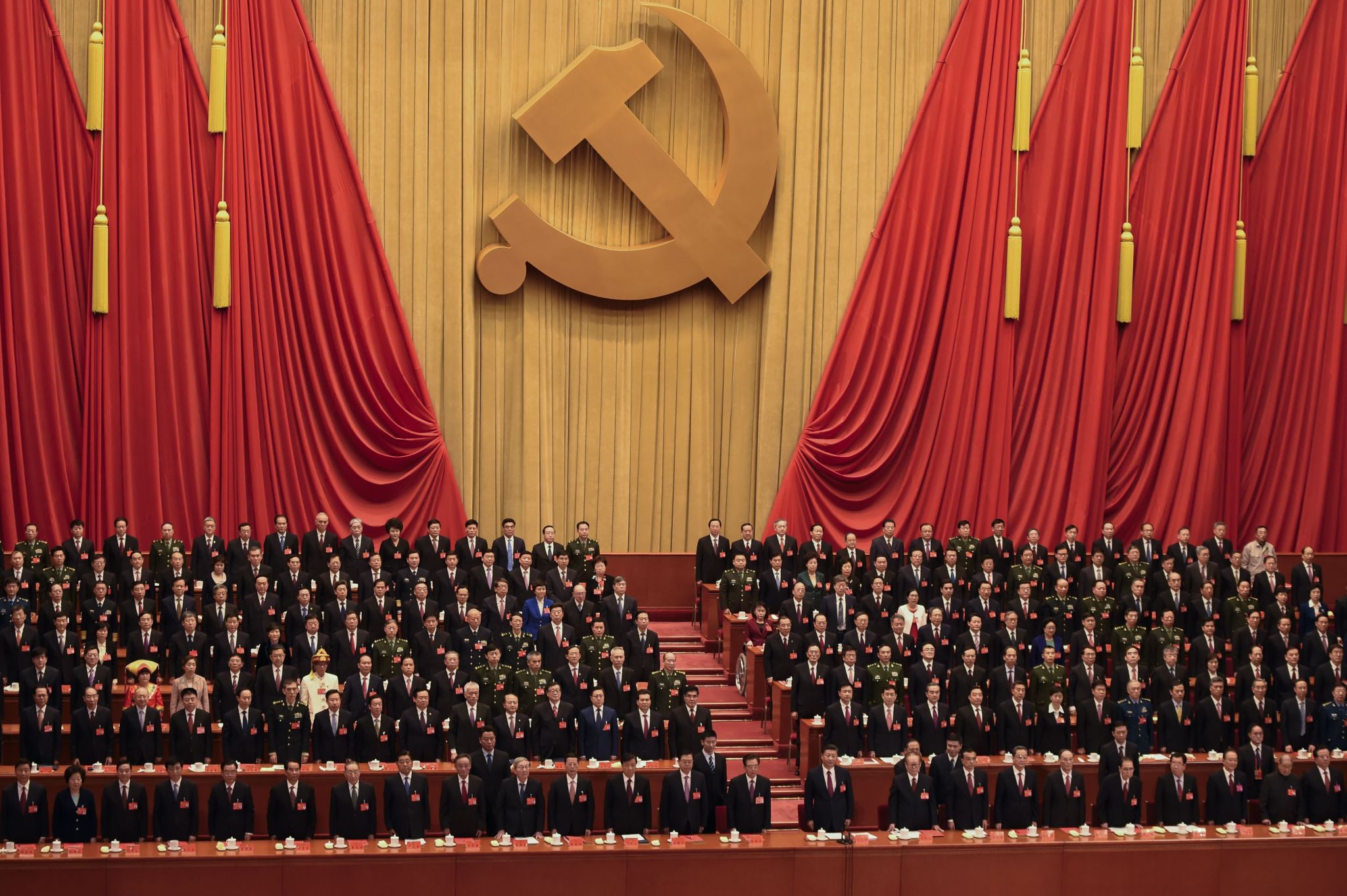
Amid a global democratic backslide and an unprecedented pandemic, authoritarian actors like the Chinese Communist Party (CCP) and Putin’s regime in Russia are seizing the initiative to exert influence in established and emerging democracies. To help bolster democracies against the corrosive effects of this rising authoritarian tide, IRI’s CFAI programming equips civil society, the media, government officials, political parties, and the private sector with the knowledge and tools to expose and counter foreign authoritarian influence.
Twenty-first century authoritarians have twenty-first century toolkits, using economic leverage, information operations, digital disinformation, and the sale of repressive technologies to prop up other repressive states and place pressure on democratic actors. But these tools are often poorly understood, as are the ways by which democratic governments and civil societies can work together to fight back. That’s why IRI’s three-step approach to combating authoritarian influence begins with commissioning and sharing world-class research on the ways that China and Russia engage democratic countries:
- Sharing research on how the PRC or Kremlin undermine democratic processes and governance institutions with IRI’s global network of partners;
- Empowering local stakeholders with the means to conduct similar research independently, the skills to execute advocacy campaigns to hold leaders accountable, and the tools and resources to devise and advance policy solutions to bolster their countries resilience to external influence; and
- Catalyzing the development and adoption of locally appropriate policy solutions that mitigate PRC and Kremlin authoritarian influence.
To date CFAI has partnered with researchers in more than 45 countries to demonstrate their vulnerabilities and the tactics used to exploit them. CFAI also partners with IRI’s regional divisions to foster comparative understanding of authoritarian actors to inform regional-specific programming. In Latin America, IRI is conducting public opinion research on PRC influence to develop tailored advocacy and public awareness initiatives on PRC engagement that resonate with the broader populace. Through such research, IRI is building a knowledge base about China’s on the ground impact around the world and the elements of effective democratic resilience, as well as a cohort of researchers equipped to knowledgably tackle the subject in their own countries going forward.
Research is only valuable if it equips the right people with the tools to make the right decisions. Accordingly, the second step in IRI’s CFAI process involves equipping actors with the resources to bolster democratic resilience. IRI provides material and technical support to grassroots activists in every region of the world to develop and execute evidence-based, context-specific initiatives that draw attention to foreign meddling and the resultant impact on democracy and demand action and accountability from their governments to counter it.
Examples include partnering with an art activist in Ghana raising awareness about PRC economic coercion and political influence through satire; an investigative journalist in Kenya exposing instances of PRC information manipulation tactics in the Kenyan press; and an Indigenous rights group in the Amazon region highlighting the environmental impact of projects funded and implemented by China National Petroleum Corporation on Peru’s Amazon and Indigenous peoples.
The third step in IRI’s CFAI process involves leveraging IRI’s global political networks to connect local civic actors and policymakers to collaborate on the development and adoption of policies to counter authoritarian influence. Through such engagements, IRI is working to overcome barriers to political action, strengthening trust between civic actors and policymakers and supporting dialogues on strategies for enhancing democratic resilience. As part of these efforts, IRI is cataloguing the effective elements of the democratic response and fostering a global network of partners – and democracies – committed to democratic solidarity against authoritarian influence. In Central and Eastern Europe, for example, IRI convenes political actors to strengthen policy responses to PRC coercion of European nations, as seen tangibly in the European Union’s emerging Anti-Coercion Instrument.
By engaging stakeholders across sectors, IRI’s work promotes broad awareness of authoritarian tactics and the keys to shoring up vulnerable democratic institutions.
CCP
The CCP undermines democratic processes in vulnerable countries by exploiting governance gaps and ensuring a lack of local awareness of the risks of engagement with Beijing. While Chinese entities conclude infrastructure investment deals that bring financial leverage and corrupt benefits to elites, the PRC uses various means to simultaneously shape the information space and influence domestic political decision-making in its favor. China employs these “sharp power” tools more aggressively as democracies begin to push back against its malign behavior.
IRI has developed and implemented a framework to build resiliency against growing PRC interference through its flagship Building Resiliency for Interconnected Democracies in Global Environments (BRIDGE) initiative, funded by the National Endowment for Democracy (NED). Through BRIDGE, IRI has developed and refined the three-step approach described above, working with partners in more than 35 countries to identify channels for PRC authoritarian influence, as well as opportunities for resilience.
However, the broad range of tools used by the PRC to pressure democracies demands equally broad responses. That is why IRI has expanded its work into the information sphere, working in partnership with the U.S. State Department’s Global Engagement Center and the Bureau of Democracy, Human Rights, and Labor to examine the PRC’s impact on the information environment in the Indo-Pacific and Africa, respectively.
Through these initiatives, IRI and its partners throughout the globe are working together to develop and implement effective policy responses to PRC interference, translating key lessons into actionable steps that CSOs, media, and policymakers can use to expose and counter PRC influence and interference.
Kremlin
The Kremlin’s malign influence is more opportunistic than the PRC’s but has the same destructive impact on democratic institutions. The Kremlin’s main objective is to keep Russia’s political elite in power indefinitely and without accountability for decades of criminality, including for widespread kleptocracy it has used to fund corrupt proxies at home and abroad. Suppressing dissent within Russia is a key component of keeping the elite in power; so too is undermining democracy in other countries. Moscow fears being surrounded by a larger number of successful democracies where Russian-speaking population votes in free and fair elections and where Russian-language media offer unbiased coverage of events in the post-Soviet space.
If exposed to this, the people of Russia would inevitably increase their demands for significant changes to the oppressive political and economic systems at home. The lack of opposition and the presence of state-sponsored multi-language propaganda outlets allows Russia to portray its illiberal governance model as highly successful to domestic and foreign audiences. This, in turn, drives these audiences away from supporting a democratic model of governance and turns them into proponents of the views and agenda of Moscow.
To exert its malign influence in other countries, the Kremlin employs a variety of tactics with the overarching goal of undermining democracy and backing client governments. Among other approaches, the Kremlin actively seeks to destroy values-based alliances—preferring, instead, to deal bilaterally with weak or weakened states. It also employs a range of tactics—from sharing surveillance technology to training police in violent riot suppression tactics—to eliminate all domestic opposition (politically active citizens, free media, and religious minorities) who might otherwise challenge its ally governments.
IRI addresses these threats by empowering local politicians, civil society organizations, media, and researchers with data and tools necessary to counter the impact of the Kremlin’s malign influence, building national and transnational alliances, and equipping key implementers with research and data essential to design and implement successful interventions tailored for the local context.
Technical Experts

Caitlin
Director, Countering Foreign Authoritarian Influence and Strategy – Center for Global Impact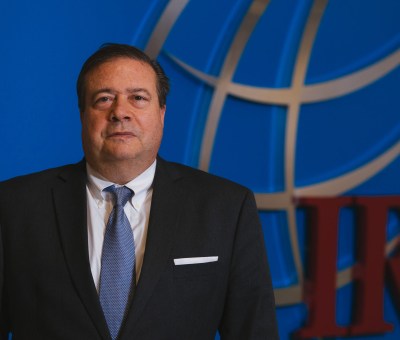
Stephen B.
Nix, Esq.
Senior Director, Eurasia

Johanna
Kao
Senior Director, Asia-Pacific

Michael
Druckman
Senior Advisor
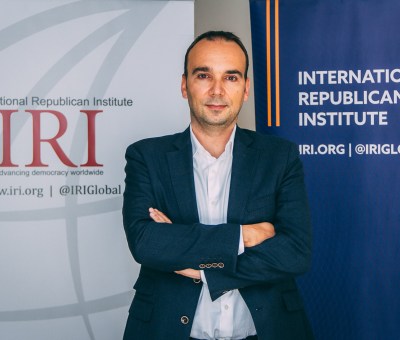
Borislav
Spasojevic
Resident Program Director, Montenegro
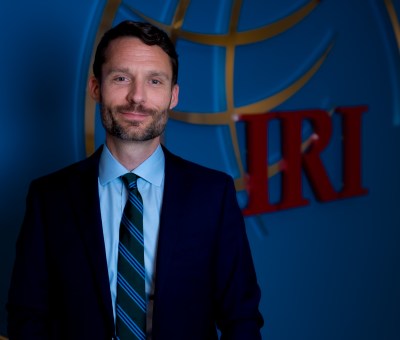
Patrick
Quirk, PhD
Vice President for Strategy, Innovation, and Impact

Casey
Cagley
Advisor, Latin America and the Caribbean
Latest News
Dr. Daniel Twining Addresses China’s Global Repres…
Washington, DC – President of the International Republican Institute (IRI) Dr. Daniel Twining provided opening remarks at “Sanctioned Voices: Spotlighting China’s…
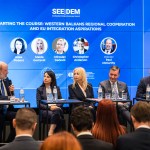
IRI Southeastern Europe Democracy Summit: Unified …
The International Republican Institute (IRI) held its fifth annual Southeastern Europe Democracy Summit (SEE|DEM) in Brussels, Belgium on Tuesday, 16…

Western Balkans Task Force: 2023 in Review…
Russian and Chinese influence in the Western Balkans continued to undermine regional stability in 2023. Chinese investments – particularly in…

Lessons and Challenges in Countering Foreign Autho…
From Buenos Aires to Bogota, the information environment across Latin America and the Caribbean (LAC) is increasingly replete with authoritarian-driven…
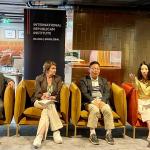
Promoting Religious Freedom: A Timeless Commitment…
In today’s world, where the pursuit of human rights often finds itself in the crosshairs of political strife and societal…
IRI Condemns Unjust Sentencing of Vladimir Kara-Mu…
The International Republican Institute (IRI) released the following statement after the Putin regime sentenced prominent pro-democracy Russian statesman Vladimir Kara-Murza…

The Future of Security in Europe; an HDP Exchange…
As the first anniversary of the Russian invasion of Ukraine arrived in February, members of Parliament (MPs) from Armenia, Georgia,…
We Need to Safeguard Democratic Legislatures Again…
“Nearly everywhere in the world, legislatures are consistently the least popular branch of government — a fact that has been…
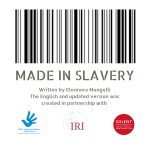
The International Republican Institute and the Ita…
A New Podcast Exposing China’s Scheme to Detain, Brainwash, and Enslave Uyghurs in Xinjiang While Profiteering.
IRI Gathers Municipal and NGO Representatives in L…
LUBLIN, POLAND-Since the beginning of the 2022 Russian invasion of Ukraine, almost eight million displaced Ukrainians have been recorded across…

International Anti-Corruption Day 2022: How IRI is…
International Anti-Corruption Day encourages people, governments, and organizations around the world to shine a light on corrupt practices plaguing their…
IRI Condemns Execution of Iranian Political Prison…
Washington, DC – The International Republican Institute (IRI) issued the following statement after the regime in Iran executed the first…
Latest Resources


The Global Expansion of PRC Surveillance Technolog…
Implications for Human Rights and International Governance
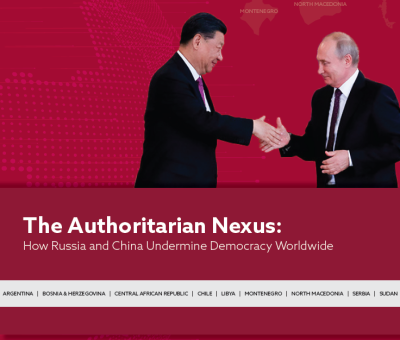
The Authoritarian Nexus – How Russia and China Und…
The burgeoning relationship between Chinese and Russian Presidents Xi Jinping and Vladimir Putin is illustrated by China’s unprecedented support for…
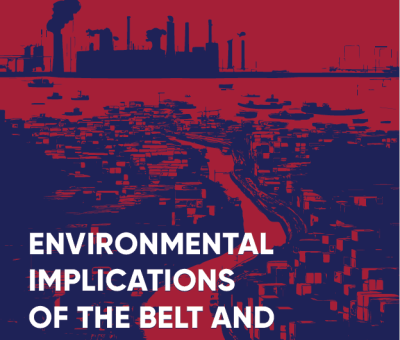
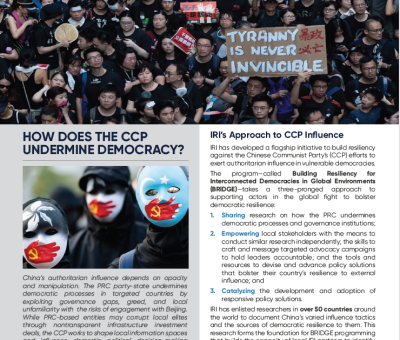
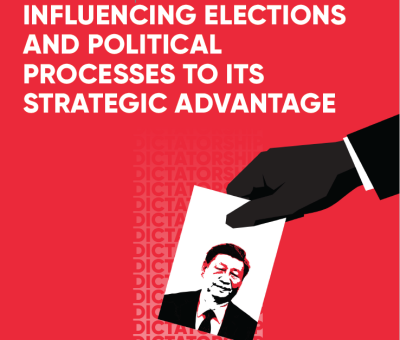
China’s Approach to Influencing Elections and Poli…
Potential interference by the People’s Republic of China (PRC) in elections is a perennial concern. Seemingly unwilling to recognize how…
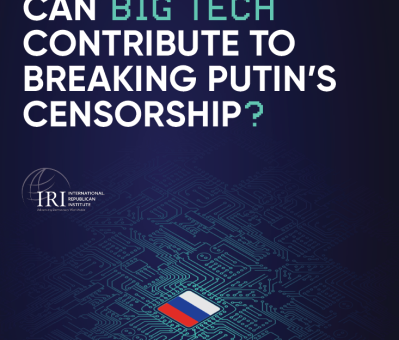
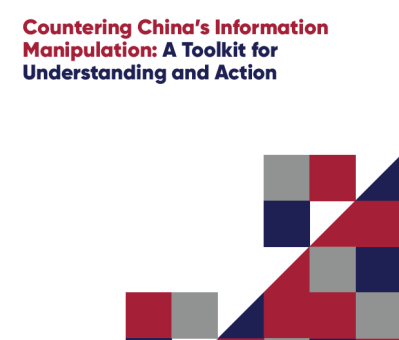
Countering China’s Information Manipulation: A Too…
This toolkit is a companion to the IRI report “Countering China’s Information Manipulation in the Indo-Pacific and Kazakhstan: A Framework…
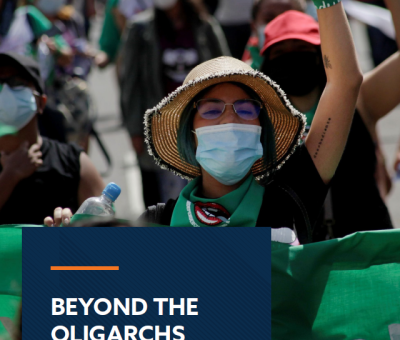
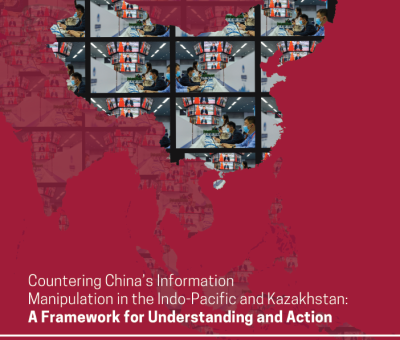
Countering China’s Information Manipulation …
A Framework for Understanding and Action
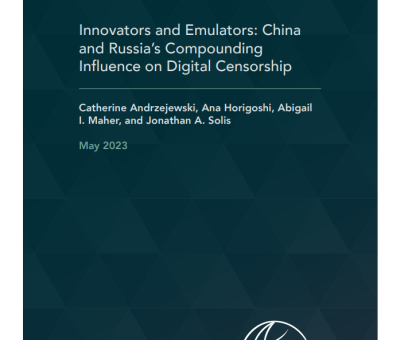
Innovators and Emulators: China and Russia’s…
Authoritarian governments, like those of Russia and China, increasingly serve as role models for autocratizing states and export their tools…
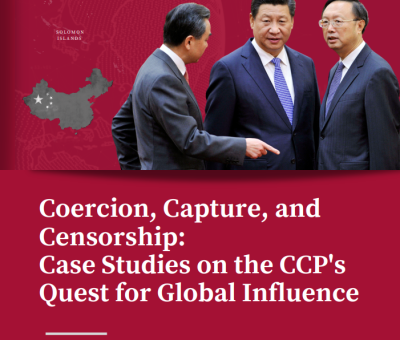
Coercion, Capture, and Censorship: Case Studies on…
The world has changed profoundly in the year since the International Republican Institute released its latest survey of People’s Republic…